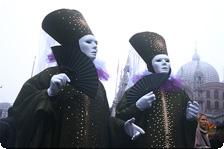December is the party child of the Gregorian calendar. With Hanukkah, Kwanzaa, Winter Solstice, and New Years Eve, we would think that the Son of God would have chosen a less busy month to be born.
But, if we take a look back at history, we’ll find some interesting changes that took place after the birth of Jesus. Romans decided to add a few months to their calendar to honor their rulers. First, the Roman Senate named the month of July after Julius Caesar to reward him for reforming their calendar, which had degenerated into a chaotic embarrassment. After Julius’s grandnephew Augustus defeated Marc Antony and Cleopatra (what a sad story that was), and became emperor of Rome, the Roman Senate decided that he too should have a month named after him. So, you see, based on the original Jewish calendar, Jesus’ birthday was actually a few months ago.
Jesus was probably born on the 15th day of Tishri (the 7th Jewish month). The fifteenth day of the seventh month begins the Feast of Tabernacles (Lev 23:34-35), also known as Sukkot. Jesus was born on the first day of the Feast of Tabernacles in the year 5 B.C.E. (Jewish year 3756). This explains why there was no room at the inn for Joseph and Mary. A multitude of Jewish pilgrims had come to Jerusalem to observe the Feast (Deu 16:16). Bethlehem, only a few miles outside of Jerusalem, was also overflowing with visitors because of the celebrations.
At the time, that was pretty big stuff (still is, if you think about it), because the country (Israel) was suffering from Roman occupation, and the only way Jews could be forgiven for any wrongdoings they committed (including lying, cheating, adultery, etc., it was an eye for an eye and a life for a life) was through elaborate rituals of sacrificing livestock, grain, perfume, and money. And this was to be done for them by a priest in a long, drawn out ceremony that could take days, depending on how bad they had been. If it were me, I would be there for days, maybe weeks. God was very far away and not accessible to anyone but the priests.
‘The Promise of Jesus’ was that the Jews would have a chance for a close relationship with God—no more sacrificing animals through priests in the Tabernacle. Jesus would be their ‘living sacrifice’ and God would no longer be far away. His Son would act as the ambassador for the Jews (John 6:51). The night that Jesus was born was seen as a new beginning for Israel—things would change for the better. During His life, Jesus spent time sharing advice about how to treat others the way you like to be treated, how to let go of anger, and how to be a better person. He respected women and spent much of His time in their company, and His first miracle was turning water into wine for a wedding!
He believed that people should celebrate life and look for the beauty in others. He was the perfect man! He disliked authority and didn’t too care much for pomp religious ceremonies. He believed that everyone had a right to know God, and He came down to earth to lead the way. No matter who you believe Jesus is, His teachings are still pretty powerful and timely – have faith in something bigger than yourself, keep forgiving, be generous, and love others.
In this season of buying symbolic birthday presents for Jesus to give to our family and friends, it might be nice to remember what all this Christmas stuff is really about. It’s hard sometimes, especially when there’s a sale going on at Nordstrom.
Merry Christmas to you all and Happy Birthday Jesus!
Teresa Rodriguez Williamson







